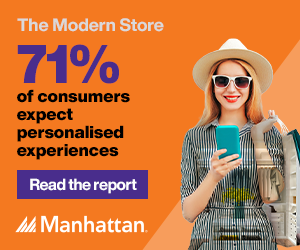Conversational AI tackles beauty product discovery challenges
Retail Technology magazine talks to Anri Krikheli, CEO & Co-founder of Aurina, about the future of digital service in the beauty sector
Beauty commerce is booming globally, with the market valued at $550 billion. Still, one persistent issue prevents it from reaching its full potential: how do customers efficiently discover the right products for their unique needs?
With overwhelming product choices and time-consuming research processes, the industry faces significant inefficiencies. Customers can spend over 60 minutes researching a single beauty purchase online, leading to high abandonment rates and frustrated shoppers.
Multiple technology solutions are emerging to address these challenges, from artificial intelligence (AI) powered visual search and augmented reality (AR) try-on tools to conversational AI platforms like Aurina, which provides natural language recommendations in under three minutes.
A widespread discovery crisis
The complexity of beauty product discovery creates what industry experts call "discovery bottleneck syndrome" across all beauty categories. Purchase decisions involve skin compatibility, ingredient interactions, colour matching, and texture preferences—factors that traditional e-commerce struggles to address effectively.
Consumer behaviour reveals the scale of this challenge. Influencer-driven discovery has plummeted from 15% to 7% between 2023 and 2025, while 51% of consumers now rely primarily on user reviews. McKinsey research indicates that 82% of customers want AI assistance to reduce research time, with industry executives identifying "experiential product discovery" as AI's highest-impact application.
Current discovery methods present significant limitations: search engines lack personalisation, review sites provide context-free opinions, and recommendation engines rely on shallow algorithms. The result is fragmented, high-friction customer journeys.
Technology solutions emerging
The beauty industry is responding with various technological approaches. Visual search tools allow customers to upload photos and find similar products, while AR try-on experiences enable virtual testing of makeup shades and skincare effects. AI-powered recommendation engines analyse purchase history and skin profiles to suggest compatible products.
Conversational AI represents another promising approach, enabling customers to describe their needs in natural language rather than navigating complex filtering systems. Companies like Aurina are developing systems that complete consultations in under three minutes through natural dialogue.
"Just like a personal consultant understands your preferences and guides you to the perfect product, conversational AI provides hyper-personalised recommendations," Anri Krikheli, CEO & Co-founder of Aurina, told RetailTechnology.co.uk.
Most recommendation tools use generic algorithms, but advanced solutions integrate directly with retailer inventory. These systems map customer preferences to actual available products per brand and retailer.
Physical-digital integration
Successful implementations recognise that premium beauty consultation remains anchored in physical retail. McKinsey research confirms that "once you see something online, the likelihood is you want to see it in the store."
QR code-powered AI kiosks create "always-on" consultation capabilities that can scale premium service beyond traditional staffing limitations. One global retailer studied by McKinsey "saw conversion rates increase by as much as 20%" with AI-powered shopping assistants.
Krikheli added that trials of Aurina by sales consultants from premium brands including Dior, Chanel, Tom Ford, and Kilian report that AI solutions enhance rather than replace human expertise.
Market transformation timing
Several factors make 2025 pivotal for the adoption of beauty AI. Technological advancements in natural language processing and computer vision have reached new capabilities, while industry investment signals mainstream acceptance—L'Oréal's recent partnership with NVIDIA being a notable example.
The global retail media market is expected to experience healthy annual double-digit growth, reaching $179.5 billion by 2025, which will provide infrastructure for AI integration. According to McKinsey: "Generative AI could add $9 billion to $10 billion to the global economy based on its impact on the beauty industry alone."
The transformation resembles early e-commerce adoption, where first movers captured lasting advantages. Companies that successfully integrate discovery technologies may establish a competitive positioning that becomes difficult for late adopters to match.
Competitive implications
McKinsey warns that "the fast will become faster, more responsive, and better equipped to anticipate and deliver what consumers want, while those left behind may find it harder to hold on to slivers of market share".
Discovery technologies restore efficiency and confidence to beauty shopping. Whether through visual search, AR experiences, or conversational AI, these solutions eliminate the need for customers to become product experts.
Retailers benefit through fewer abandoned carts, higher conversion rates, and increased customer loyalty. The convergence of consumer demand, technological capability, and market timing creates significant opportunities for beauty commerce innovation.
Krikheli concluded: "The beauty industry has spent too long expecting customers to become product experts to make purchase decisions. It's time for technology to meet people where they are—with natural conversation that understands their unique needs."
At the time of publication, Aurina is onboarding premium fragrance retailers for a limited pilot to scientifically validate the commercial impact of conversational AI in beauty retail.





